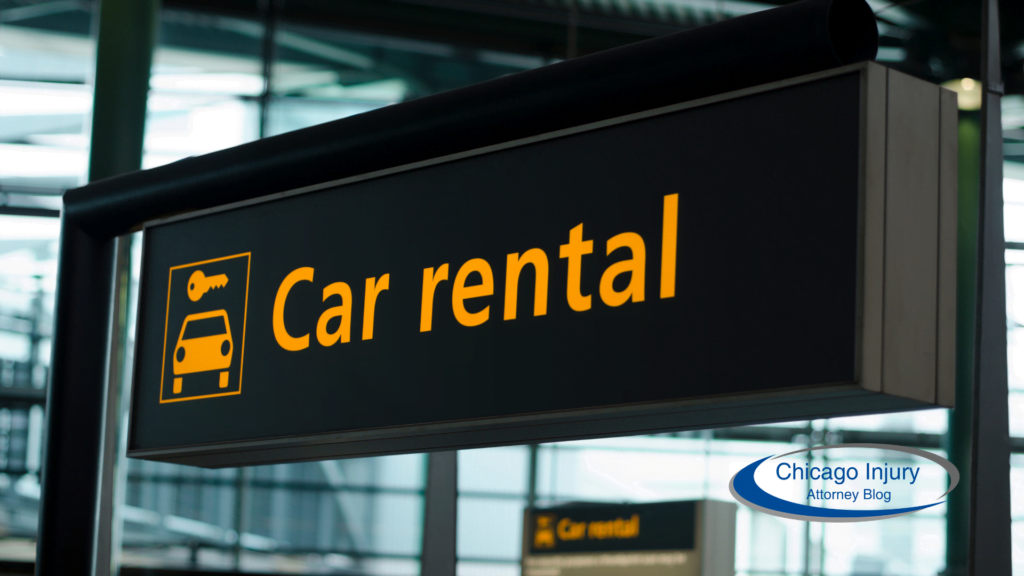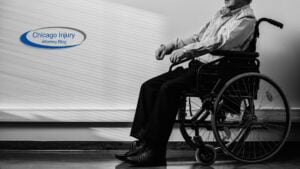Are you prepared for what to do in case of a rental car accident? From understanding the types and causes of accidents to knowing the immediate steps to take, dealing with insurance matters, documenting the incident, and reporting it, there are crucial steps to follow. Understanding liability and seeking legal assistance are crucial aspects to consider. In this article, we will guide you through the process of handling involving rental car accidents effectively.
Understanding Rental Car Accidents
Understanding Rental Car Accidents is essential for individuals involved in such incidents to navigate the legal and insurance complexities that follow.
When a rental car accident occurs, determining liability can be a challenging process. Depending on the circumstances, multiple parties, including the driver, the rental car company, and other drivers involved, may be held accountable.
Insurance coverage for rental cars varies, with some rental companies offering additional policies to cover damages and injuries. It’s crucial to review your own insurance policy and understand the terms and conditions regarding rental car coverage.
Rental companies often have specific procedures outlined for dealing with accidents, including reporting requirements and steps to follow in case of damage or injury. It’s important to familiarize yourself with these protocols to ensure a smooth resolution.
Types of Accidents Involving Rental Cars
Accidents involving rental cars can range from minor fender benders to serious collisions that result in significant damages to the vehicles and potential injuries to passengers.
Minor accidents can lead to scratches, dents, or small bumps, often requiring minor repairs and inconvenience for the renters.
On the other hand, serious collisions may result in extensive damage, rendering the vehicle inoperable and posing a risk to the safety of the occupants.
These accidents can impact not only the individuals involved but also the rental company in terms of vehicle availability, insurance claims, and customer dissatisfaction.
While some accidents might be resolved with minimal disruption, others could lead to legal disputes and financial repercussions for all parties.
Common Causes of Rental Car Accidents
Rental car accidents can be caused by a variety of factors, including driver error, adverse weather conditions, mechanical failures, or negligence on the part of other motorists sharing the road.
Driver error is a common reason for rental car accidents as individuals may be unfamiliar with the vehicle they are driving or may underestimate road conditions.
Adverse weather conditions such as rain, snow, or fog can significantly impact driving visibility and road traction, increasing the likelihood of accidents.
Mechanical failures, although less frequent, can lead to sudden breakdowns or malfunctions that compromise vehicle control.
Negligence from other drivers on the road, such as reckless driving or failure to adhere to traffic laws, can contribute to the occurrence of rental car accidents.
Immediate Steps to Take After an Accident
After an accident, taking immediate steps is crucial to ensure safety, seek necessary medical treatment, and initiate the insurance claim process promptly.
Once the accident occurs, ensure to assess the situation and prioritize safety above all. Move vehicles to a safe location if possible and turn on hazard lights to alert other drivers. Check for injuries and seek medical help immediately, even for seemingly minor discomforts.
- as some injuries may not be apparent at first.
Collect essential information such as contact details, insurance information, and witnesses’ accounts.
- Report the accident to the police and get a copy of the report, which may be pivotal for insurance claims.
Contact your insurance company without delay to start the claims process and provide all the necessary details accurately. Remember, acting promptly can facilitate a smoother post-accident process.”
Ensuring Safety and Seeking Medical Attention
Ensuring safety and seeking immediate medical attention are paramount priorities following a rental car accident to address any injuries sustained in the crash.
After the initial shock of the accident, it is crucial to assess the extent of any injuries by qualified medical professionals. Prompt attention can prevent minor injuries from escalating into major health issues. Timely medical care can significantly impact the recovery process and overall well-being of the individuals involved.
It is important to consider various treatment options, ranging from physical therapy to surgical interventions, depending on the severity of the injuries. Documenting all medical treatment and evaluations in detail is essential for insurance claims, legal proceedings, and personal records.
Contacting Authorities and Rental Car Company
Contacting the relevant authorities and the rental car company immediately after an accident is crucial to report the incident, document damages, and initiate the claims process.
Once you have ensured the safety of all individuals involved, notifying the police and the car rental provider allows for an official record of the accident, which can be invaluable for insurance claims and legal purposes. Timely reporting helps in expediting the resolution process and proves beneficial in case of disputes.
Most rental companies require specific documentation to process claims, such as a police report, rental agreement, photos of the damage, and any witness statements. Providing these details promptly can smoothen the claim filing process and facilitate a quicker resolution.
Rental agencies often offer support services post-accident, such as arranging for alternative transportation, towing, or helping with insurance company communication. Their assistance can alleviate the stress and confusion that often accompany accidents, ensuring a more streamlined recovery process.
Dealing with Insurance Matters
Navigating insurance matters after a rental car accident involves reviewing rental car insurance policies, understanding coverage options, and coordinating with different insurance providers for comprehensive compensation.
One critical aspect to consider is the extent of coverage provided by the rental car insurance policy. Policies can vary significantly, affecting the amount you could be liable for in case of an accident. It’s essential to thoroughly examine the policy details, such as liability coverage, collision coverage, and comprehensive coverage, to grasp the level of protection it offers.
Interactions with insurance companies post-accident may involve providing detailed information, filing claims, and negotiating settlements. Handling these processes can be daunting, especially when dealing with multiple parties and navigating complex insurance jargon.
Reviewing Rental Car Insurance Policy
Reviewing the rental car insurance policy is essential to understand the extent of coverage for damages, liabilities, and potential waivers that may affect compensation post-accident.
When you dive into the details of the insurance policy, you uncover important coverage aspects that can make a significant difference in your financial protection. Understanding the damage waivers can prevent unexpected expenses should an unfortunate event occur during the rental period. Being aware of potential exclusions helps in managing risks effectively, ensuring you are adequately prepared for any contingencies. Therefore, dedicating time to carefully assess the intricacies of the insurance terms can save you from unforeseen complications and ensure a smooth rental experience.
Communicating with Your Personal Auto Insurance Provider
Communicating with your personal auto insurance provider post-accident is crucial to understand potential coverage overlaps, coordination with rental car insurance, and seeking compensation for damages incurred.
Reaching out to your credit card company to inquire about any secondary coverage they may offer can provide further protection and support in the aftermath of an accident. These combined efforts can help streamline the claim process and ensure that you are optimizing your opportunities for reimbursement.
Coordinating with rental agencies is also essential, as understanding their insurance policies and coverage options can influence your decisions regarding additional protection or claims filings. By engaging with these entities proactively, you can navigate the complexities of insurance claims more effectively and align your actions to maximize your compensation.”
Documenting the Accident
Documenting the details of the accident through gathering necessary information, taking photographs, and noting down crucial specifics is vital for insurance claims, legal proceedings, and potential representation by a personal injury attorney.
Thorough accident documentation serves as a crucial foundation while navigating the complexities of insurance claims and legal scenarios.
When an accident occurs, capturing data such as the location, time, weather conditions, and the sequence of events is not only essential for your insurance claim but can also be valuable if legal matters arise.
Photographic evidence plays a pivotal role in reinforcing your case, providing visual proof of the incident and its aftermath.
Preserving accurate information from witnesses, involved parties, and authorities creates a comprehensive record that can strengthen your position in any potential legal disputes.
Gathering Necessary Information
Gathering necessary information post-accident, such as contact details, insurance information, and witness accounts, is vital for evaluating liabilities, seeking compensation, and potential legal representation.
When gathering contact details, it’s crucial to note down names, phone numbers, and addresses of all parties involved, including witnesses. Ensuring you gather accurate insurance information from all drivers involved can streamline the claims process.
Witness accounts play a significant role in clarifying the sequence of events. Collect their statements promptly, as memories can fade quickly. This information can be invaluable in determining fault and liability.
Legal considerations are also paramount post-accident. It’s essential to document the scene thoroughly, take photographs, and seek medical attention promptly, even for minor injuries.
Taking Photos and Writing Down Details
Taking detailed photographs of the accident scene, vehicle damages, and surrounding conditions, while documenting specific details promptly, can strengthen insurance claims and legal cases with the support of a car wreck lawyer if needed.
Visual evidence plays a crucial role in providing a clear picture of the circumstances surrounding the accident.
Photography can capture details that may later become essential in demonstrating fault or liability.
Plus photos, detailed note-taking serves as a vital component in preserving crucial information. This includes recording witness statements, weather conditions, road markings, and any other relevant factors. By combining photographic evidence with meticulous notes, individuals can present a comprehensive account of the incident to insurance companies and legal representation.
Seeking the expertise of a knowledgeable attorney specializing in car accidents can further bolster the case by navigating complex legal processes and advocating on behalf of the injured party.
Reporting the Accident
Reporting the accident by notifying the police, filing an official report, and contacting the rental car company promptly is crucial to ensure legal compliance, document damages, and address potential rental charge disputes.
After ensuring everyone’s safety, the first step is to call the local authorities to report the accident. Providing officers with accurate details and cooperating throughout their investigation is essential. Once the police arrive and assess the situation, an official report will be filed, documenting the incident’s specifics.
This report serves as a crucial piece of evidence for insurance claims and legal proceedings. Simultaneously, reaching out to the rental car company promptly to inform them of the accident is vital to initiate their internal procedures.
Clear and comprehensive documentation of the damages and circumstances will help avoid any misunderstandings or disputes later on, which could lead to additional charges.
Notifying the Police and Filing a Report
Notifying the police and filing an official report post-accident is essential to establish a legal record, document damages, and potentially address any discrepancies in rental car charges or claims.
When police involvement occurs after an accident, it provides an authoritative account of the incident, which is crucial for insurance claims and legal proceedings. The official report filed acts as a detailed record, outlining the specifics of the collision, including damages and injuries. This documentation not only helps in determining fault and liability but also ensures transparency and accuracy in resolving any disputes regarding rental car charges or insurance claims. It serves as a vital step in safeguarding your rights and interests in the aftermath of an accident, facilitating a smoother resolution process.
Contacting the Rental Car Company and Providing Information
Contacting the rental car company immediately after the accident and providing detailed information about the incident, damages, and rental charges is crucial to initiate the claims process, address billing concerns, and ensure timely resolution.
Effective communication with the rental company not only expedites the claims process but also aids in gathering crucial evidence for insurance purposes. Clear data sharing regarding the accident, including photographs, police reports, and witness statements, can help in expediting the resolution of any disputes or discrepancies. Promptly addressing financial matters, such as any deductible amounts or additional charges, can prevent prolonged disputes and ensure a smooth post-accident experience.
Understanding Liability and Responsibility
Understanding liability and responsibility in rental car accidents involves determining fault, assessing legal obligations, and recognizing individual rights and duties under the law.
When an accident occurs involving a rental car, the question of liability can become complex. Liability typically refers to the legal responsibility for the accident and its consequences.
In these situations, fault attribution becomes crucial as it determines who is responsible for the damages. The legal responsibilities of the parties involved may vary based on the specific circumstances of the accident, including traffic laws, insurance coverage, and any rental agreements in place. Understanding these responsibilities is essential to protect one’s rights while navigating the aftermath of a rental car accident.
Determining Fault in the Accident
Determining fault in rental car accidents involves a thorough examination of evidence, witness statements, and legal considerations to establish liability and accountability for the incident.
After an accident involving a rental car, the investigation typically includes gathering information from all parties involved, such as drivers, passengers, and any witnesses on the scene. This information is crucial in piecing together the sequence of events leading up to the accident. Physical evidence like vehicle damage, skid marks, and road conditions play a significant role in reconstructing the accident and determining who may be at fault.
Knowing Your Rights and Responsibilities
Knowing your rights and responsibilities in rental car accidents is essential for navigating insurance claims, legal proceedings, and seeking appropriate compensation for damages incurred during the incident.
After a rental car accident, it’s crucial to understand that your insurance coverage may vary depending on the type of policy you have. Most rental car agencies offer insurance options that you can purchase for additional protection, but it’s essential to review your existing insurance policy to see if it extends coverage to rental vehicles. Understanding your insurance coverage can significantly impact the steps you take following an accident.
Seeking Legal Assistance
Seeking legal assistance from a qualified attorney specializing in rental car accidents is advisable to navigate complex legal processes, negotiate insurance claims, and seek fair compensation for damages sustained in the rental car crash.
A knowledgeable attorney can guide you through the intricate web of insurance negotiations, ensuring you understand your rights and options while dealing with the aftermath of a rental car accident. They will offer expert legal representation, advocating for your best interests and working diligently to maximize the compensation you are entitled to. By enlisting the help of a skilled attorney, you can alleviate the stress of the legal proceedings and increase your chances of a favorable outcome in your case.
Consulting with an Attorney Specializing in Rental Car Accidents
Consulting with an attorney specializing in rental car accidents can provide valuable insights into legal options, insurance coverage nuances, and potential strategies to pursue compensation for damages incurred during the incident.
Legal consultations post-accident play a crucial role in navigating the complexities of the legal system. An experienced attorney can assess the situation, advise on the best course of action, and ensure your rights are protected. They have the expertise to interpret complex insurance policies, negotiate with insurance companies, and represent your interests effectively. Legal consultations can help in exploring various legal pathways for seeking compensation, whether through negotiation, mediation, or litigation.
Understanding Legal Options and Recourse
Understanding legal options and recourse in rental car accidents involves evaluating potential compensation avenues, legal remedies, and strategies for addressing rental charges, with the guidance of legal experts.
After an accident involving a rental car, individuals can explore various pathways to seek compensation, such as filing an insurance claim with their own insurer, pursuing a claim against the at-fault driver’s insurance, or opting for legal action if necessary.
In cases of disputes over liability or compensation amounts, mediation or arbitration can offer alternative dispute resolution methods to avoid lengthy court battles. Handling rental charges related to the accident can be navigated by understanding rental agreements, insurance coverage, and seeking advice from legal professionals.
Frequently Asked Questions
What should I do if I get into an accident with a rental car?
The first thing you should do is check for any injuries and call emergency services if necessary. Then, report the accident to the rental car company and follow their instructions for next steps.
Do I need to purchase additional insurance when renting a car?
It is recommended to purchase additional insurance when renting a car, as the coverage provided by your personal auto insurance or credit card may not be enough. Check with the rental car company for their insurance options.
Am I responsible for damages to the rental car in an accident?
Yes, you are responsible for any damages to the rental car, even if the accident was not your fault. This is why it is important to purchase insurance or have coverage through your personal auto insurance or credit card.
What information should I exchange with the other driver in an accident involving a rental car?
You should exchange the same information as you would in any other car accident, including names, contact information, license plate numbers, and insurance information. Make sure to also get the rental car company’s information.
Do I need to file a police report for an accident with a rental car?
It is recommended to file a police report for documentation purposes, even if the accident was minor. Some rental car companies may require a police report to process any claims or reimbursements.
What should I do if I am at fault for an accident with a rental car?
Notify the rental car company immediately and follow their instructions for next steps. You may be responsible for any damages to the rental car and any other vehicles or property involved in the accident.





